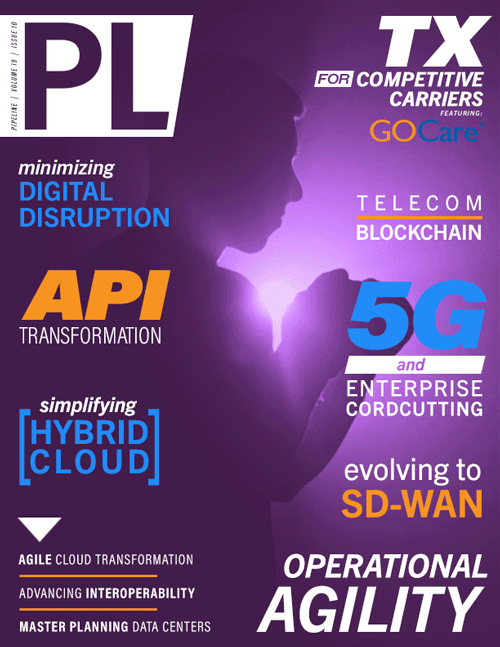Blockchain for All Telecom Carriers:
The Future of Public Blockchain Is Here
By: Tiffany Brown

For 99 percent of the world’s telecommunications carriers and their customers, the concept of solving back office and operational issues has long been a pipe dream. Even for those forward thinkers who have been looking into blockchain and following developments in the technology and use cases for distributed ledger technology, the idea of putting proprietary contract logic, pricing, and location information on an immutable public ledger for the world to see remains largely untenable. Despite the alluring promises of the technology to resolve the very real everyday pain and costs inflicted by the current antiquated telecom ordering, billing, settlement, and dispute environment, security and privacy protocols have rendered blockchain a non-option for any business other than the world’s largest telecommunications carriers. Only those that have dedicated the resources to stand up and maintain their own private blockchain environments between themselves and their largest trading partners and customers have been able to exploit the benefits of blockchain thus far.
Those select few carriers that can and have invested in blockchain are beginning to reap the significant advantages of the technology, including immutable and transparent data, unprecedented ordering efficiencies, and the simplification and modernization of complex business operations. For these companies, including the participants in the MEF Project Soft Owl live use case, the numbers are in, and the payoff is very real in terms of operational efficiencies and financial value.
Enter zero-knowledge proofs—and the case for taking a second look at public blockchain
Technology has evolved and the game is changing, removing any barrier to entry for all enterprises. In the past year, blockchain technology has significantly progressed by leveraging zero-knowledge proofs, or zero knowledge Ethereum Virtual Machines (zkEVMs), to reduce the costs and resources associated with private blockchain solutions and eliminate the privacy concerns associated with public blockchain solutions.
A key component lies in the zero-knowledge proofs used in the public blockchain. Because of zero knowledge, the users do not compromise the privacy of their secrets in the process of providing the proof. Any user can see the proof, but not the contract logic or data behind it. Only the carriers to which the proof applies have access to the correlated, behind-the-scenes records and proprietary information securely contained within them.
The result of the advances in the zero-knowledge environment makes entry into a blockchain environment easier for all carriers and enterprises. zkEVM makes privacy a non-issue on public blockchain, and access to public blockchain opens the door to the many advantages of blockchain for any carrier and customer that wants them.
If public blockchain still sounds too good to be true, rest assured, it isn’t
Recognizing that the future of telecom and enterprise transactions relies on widespread adoption of blockchain solutions, industry thought leaders in forums such as MEF have united to establish standards and advance the agenda, resulting in the development of public blockchain use cases for telecom. As an example, a global communication solutions provider and LATAM network solutions provider are the first two participants in MEF Project Wolf Town, an initiative that leverages smart contracts to automate SLA credit reports and enforcement.
The solution features MEF open-source smart contracts written in Solidity to leverage LSO APIs and Ethereum testnet (goerli) technology, which will soon be transitioned to a zkEVM environment. MEF recognized the need for a zkEVM environment that guarantees data privacy on a secure public blockchain and is currently in the process of developing and deploying that environment and making it accessible to all MEF members.
According to Andreas Freund, a leader in zero-knowledge technology who has worked with MEF on its various use cases, "Digitally transformed companies account for 50%+ of the world's GDP in 2023 with more and more services delivered through complex digital supply chains. Yet, digital transformations also bring more and more cybercrime, with damages accelerating and reaching up to $10.5 trillion by 2025. In addition, more



















